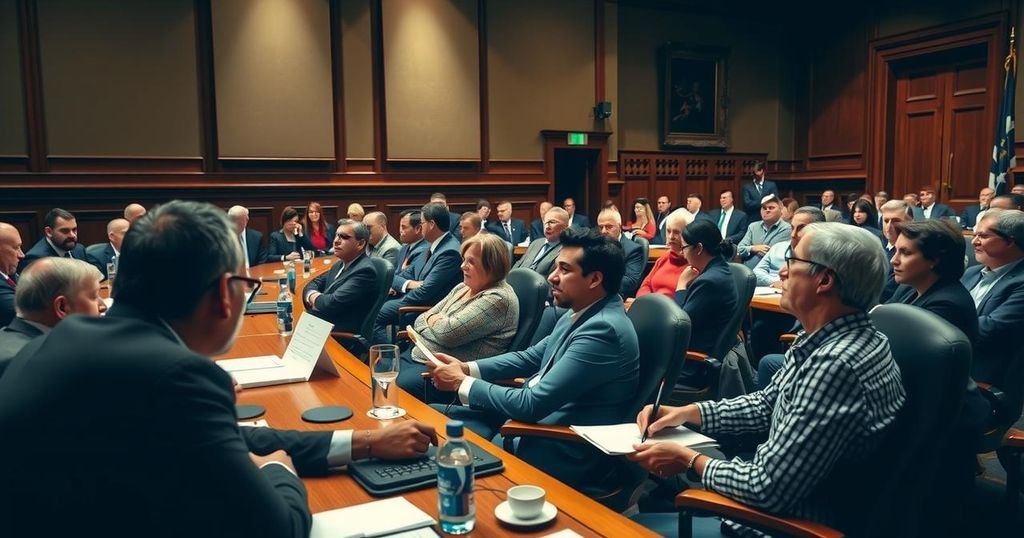Emerging Just Transition Litigation: A Call for Fairness in Climate Policy

A recent study has unveiled a growing trend of “just transition litigation,” wherein communities worldwide are legally contesting climate policies deemed unfair. This litigation focuses on balancing climate action with social justice, ensuring that vulnerable groups are not left behind as economies transition to low-carbon alternatives. Recent cases from countries like Chile and Norway emphasize the need for inclusive decision-making and recognition of affected communities’ rights.
Across the globe, legal cases are emerging that challenge the fairness of climate policies, as evidenced by a recent study conducted in collaboration with researchers from 16 universities and published in Nature Sustainability. These lawsuits, termed “just transition litigation,” focus on ensuring that the shift to a low-carbon economy does not unfairly disadvantage vulnerable communities and marginalized groups. Unlike traditional climate litigation, which often seeks accountability from governments and corporations for emissions and adaptation failures, just transition litigation emphasizes the imperative of social justice in climate action. Over recent years, there has been an observable increase in cases that deviate from conventional climate litigation models, highlighting concerns over inclusivity and fairness in climate-related decisions. For instance, in Chile, coal workers litigated against the government for being excluded from discussions regarding the phase-out of coal plants, leading to a ruling from the Chilean Supreme Court in favor of the workers, which stressed the necessity for community consultation in crafting just transition strategies. In a similar vein, Norway’s Sami Indigenous community successfully contested the issuance of wind farm licenses on the grounds that these infringed on their cultural rights related to reindeer herding. Furthermore, in Colombia, Indigenous groups asserted that anti-deforestation initiatives on their ancestral land violated their rights to self-determination and cultural integrity. These legal actions are driven by a desire for justice, as the transition to greener economies produces varying impacts across different demographics. Those affected include oil and gas workers facing unemployment, Indigenous populations confronting displacement, and various marginalized communities experiencing changes to their way of life due to new energy projects. The court cases seek to address not only the legal but also the societal ramifications of climate policy, arguing for fairness and proportionality in the distribution of both the burdens and benefits associated with climate action. As nations strive to meet ambitious climate goals, it is crucial that policymakers engage with communities to ensure that decisions on climate policies involve those who are most affected. By acknowledging and addressing grievances rather than dismissing them as mere opposition based on location, stakeholders can glean significant insights that contribute to equitable climate action. The study advocates for courts to utilize a range of legal frameworks, invoking principles of distributive, procedural, and recognition justice to assess climate initiatives critically. The findings reflect a growing acknowledgment that the costs of climate policy often disproportionately impact certain groups, highlighting an urgent need to prioritize social equity within climate discussion and action. Poorly managed transitions could exacerbate existing societal inequalities, particularly as countries like those in the EU, UK, and US aim to streamline the transition processes. As more communities resort to litigation to seek redress for grievances posed by climate policies, there is an imperative for inclusive, transparent, and equitable processes in policy formulation. Decisions regarding land ownership and employment should actively involve input from those directly impacted. Ensuring climate policies are just and fair not only safeguards vulnerable populations but also cultivates broader public support for necessary climate action.
The phenomenon of just transition litigation is gaining momentum as individuals and communities worldwide challenge the implications of climate policies that they perceive as unjust. This type of litigation acknowledges that as societies strive to transition to sustainable practices, there exist risks of negative repercussions for certain populations, particularly Indigenous communities and manual laborers. The pivotal focus of these lawsuits is on social justice, contrasting with more traditional forms of climate litigation that emphasize environmental accountability. Researchers have recognized this trend and begun to categorize lawsuits that advocate for equitable treatment within the climate policy framework, proposing the notion of “just transition litigation.” This movement reflects a broader societal understanding that climate initiatives should not merely address environmental concerns but should also consider and rectify social injustices.
In conclusion, the emergence of just transition litigation signifies a vital evolution in the discourse surrounding climate action. As communities challenge the fairness of climate policies through legal avenues, it becomes increasingly important for policymakers to engage inclusively with those affected by such changes. By recognizing and addressing the social impacts of climate transition, jurisdictions can ensure that the shift to a low-carbon economy does not perpetuate inequities or injustices. Accepting and integrating the perspectives of marginalized groups will not only enhance policy legitimacy but also foster sustainable support for crucial climate initiatives.
Original Source: theconversation.com






